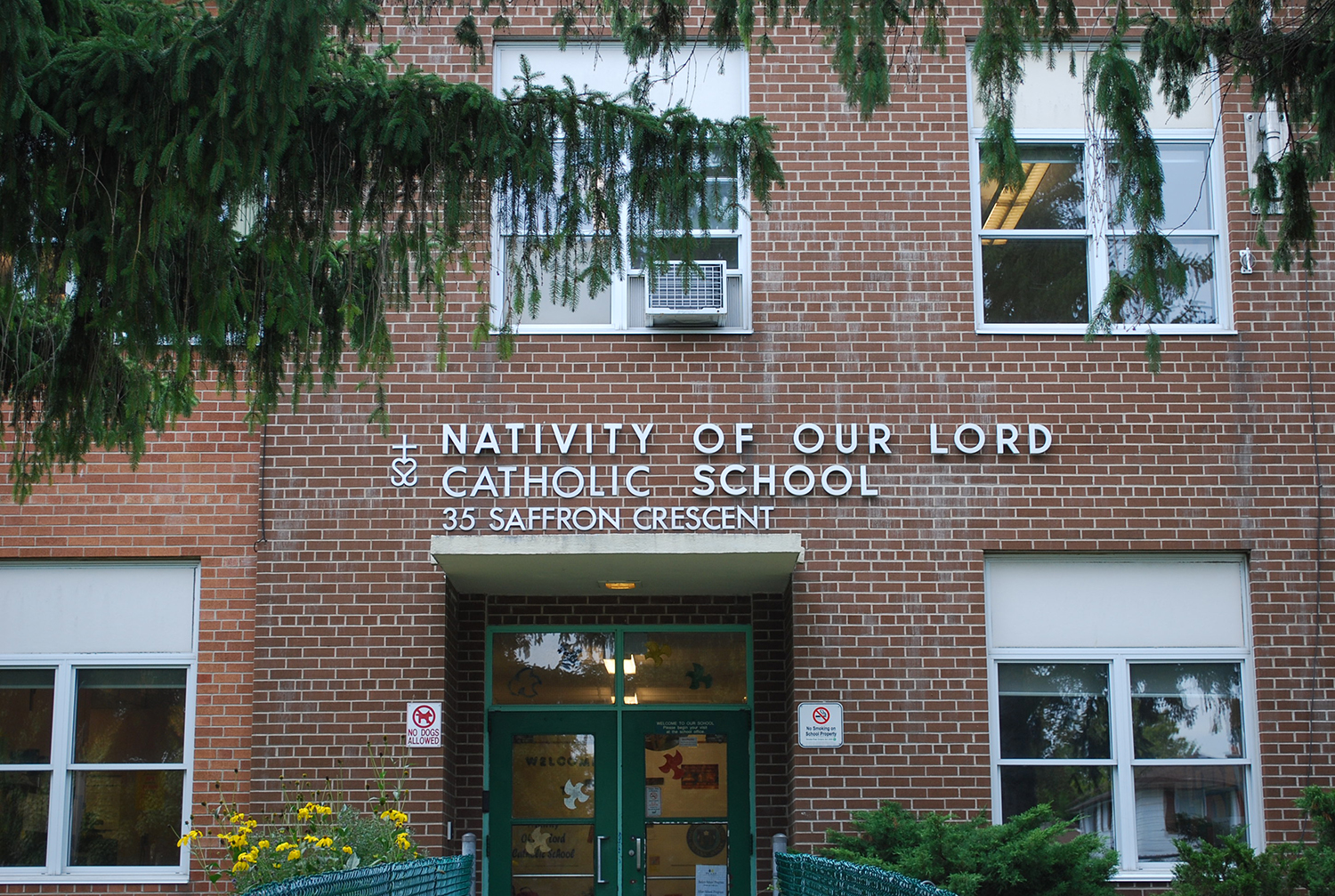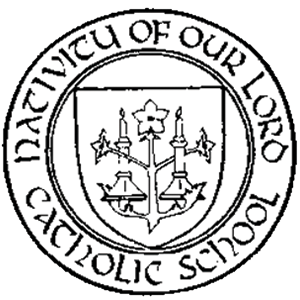Skip to content




Our School
Admissions
Parent Council
Show submenu for

About Us
Nativity of Our Lord Catholic School has served our diverse school community for more than 40 years. Though the community and school have grown and changed in many ways over the years, our focus on providing quality education based in Catholic traditions and beliefs has remained constant.
The principles that govern the school's service to the community are summarized in the school philosophy. Key elements of this philosophy are:
We provide an inclusive learning community rooted in the love of Christ and where students are educated to grow in grace and knowledge and to lead lives of faith, hope and charity.
We believe that equity, diversity, accessibility and inclusivity are integral to the Catholic community.
We are in partnership with the parents and the clergy in carrying out our responsibilities.
We believe that parents are the primary educators and that their input must be sought and taken into account.
We seek to provide support and assistance to students with special needs in the least restrictive and most enabling environment.
We actively support and promote the Mission Statement of the Toronto Catholic District School Board (TCDSB).



Mission Statement
The mission of Nativity of Our Lord Catholic School is to create an inclusive learning community rooted in the love of Christ. We aim to educate students to grow in grace and knowledge and to lead lives of charity, faith, and hope.
How We Meet the Diverse Needs of our Students
At Nativity of Our Lord Catholic School, the maintenance of a Christian community is the underlying principle that guides our responses to diverse student needs. We developed a student appreciation program that recognizes the accomplishments (i.e., academic, social) and positive characteristics of students throughout the school. Reading buddies provide opportunities for older and younger students to interact with one another in a helpful and supportive manner. Many volunteers (i.e., parent and church community, university students from York University, teacher candidates from Faculties of Education -York University and OISE/UT) work in the school as classroom helpers or within programs such as the Community-Based Literacy Intervention Program. Also, we offer an Extended French Program for interested students.
The school staff provides a range of co-curricular programs and activities: soccer (primary, junior, and intermediate), volleyball (junior and intermediate), softball, environmental club, cross country, student leadership committee, mass choir, school choir, Winter Carnival, French Café, basketball, track and field, W5H (junior and intermediate), Yearbook Committee, Math Olympics, charity events, primary soccer house leagues and hockey team.
The school provides a safe and welcoming environment based on school-based policies and procedures, such as a safe arrival program and regular re-enforcement of the behavior code. Also, the school works closely with other community agencies in matters of security and safety.
The staff meets on a monthly basis to coordinate different co-curricular programs and to evaluate their effectiveness. The teachers meet by division on a monthly basis to coordinate their in-class programs, ensuring that curriculum initiatives from the Ministry of Education and the School Board are implemented in a timely and effective manner.
The progress of each student is carefully monitored and programs are differentiated as required. The School-Based Support Team (SBST), composed of the principal, vice principal, classroom and special education teachers, and education assistants meet regularly to develop plans of action, in terms of program accommodation and modification, the use of special materials, and the administration of informal/formal educational assessments. Parents are informed about all program accommodations and modifications and their input and cooperation are sought as individual programs are developed.
Board and community resources beyond the school, such as the social worker, guidance counselor, psychometrician, assessment and programming teacher, speech and language pathologist, deaf and hard of hearing itinerant teacher, interpreter, and occupational therapist are consulted to assist parents and teachers in addressing students' needs.
Copyright © 2024 Toronto Catholic District School Board. All rights reserved. Powered By Thrillshare
